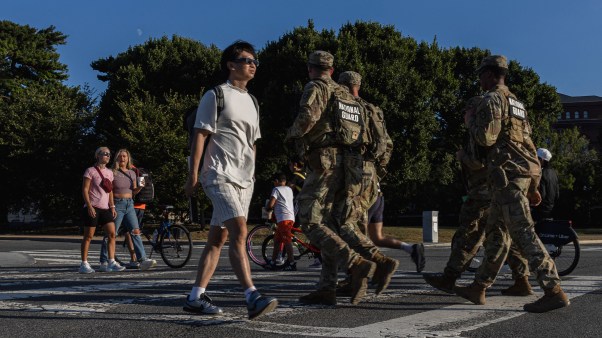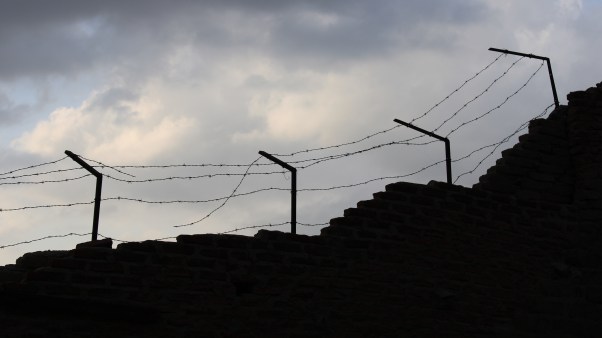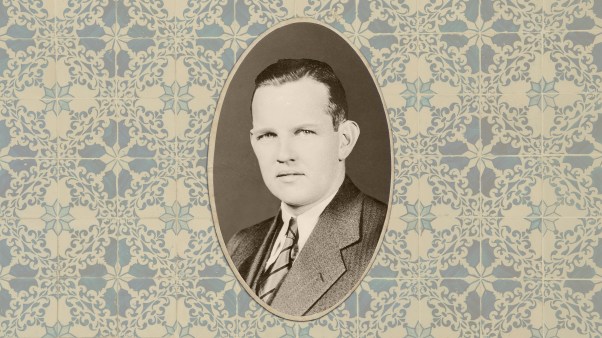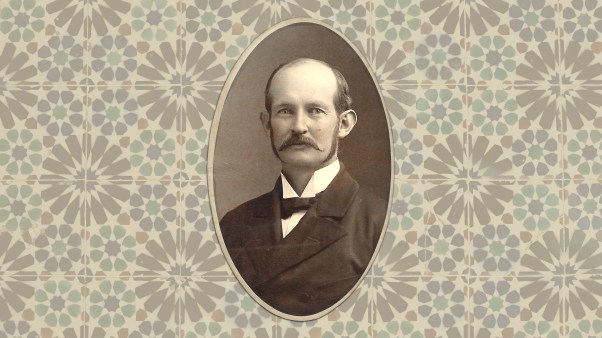Cleveland’s voucher plan is constitutional, Supreme Court says in 5-4 decisionThe Ohio Pilot Scholarship Program, which provides state-funded scholarships for students to attend private schools, “is a program of true private choice” since it allows parents to choose between religious and nonreligious schools, the Supreme Court ruled this morning. “It is neutral in all respects towards religion … The only preference in the program is for low-income families,” wrote Chief Justice Rehnquist for the majority. “Any objective observer familiar with the full history and context of the Ohio program would reasonably view it as one aspect of a broader undertaking to assist poor children in failed schools, not as an endorsement of religious schooling in general.” (The Freedom Forum offers good background on the case with a timeline. Cleveland’s WKYC has video for those who don’t like to read.)
“This was the Super Bowl for school choice and the kids won,” said Clint Bolick, vice president of the Institute for Justice, which represented provoucher parents in the case. … This is the day of sunshine we’ve battled for over the past 10 years. The constitutional cloud over school choice is finally lifted.”
Both sides of the argument agreed that this decision would be of monumental importance, and called it the biggest education case since Brown v. Board of Education, which ruled segregation illegal. It will likely throw open the doors for educational voucher programs across the country, perhaps even federally (President Bush has supported vouchers, but his plans to include them in an education reform package were thwarted last year).
“The Supreme Court has given parents nationwide the hope that they, too, will soon have the power to rescue their children from failing schools,” said Family Research Council President Ken Connor.
Jay Sekulow, chief counsel of the American Center for Law and Justice, agrees. “This is a landmark decision that will revolutionize the educational system in this country,” he said in a press release. “The Supreme Court correctly … sent a clear message: school vouchers cannot be used to discriminate against religious schools.”
Both the Family Research Council and the ACLJ filed friend-of-the-court briefs in the case.
Faced with the loss, the National Education Association is taking a different tack: “Just because vouchers may be legal in some circumstances doesn’t make them a good idea, “says NEA president Bob Chase. “Vouchers are a divisive and expensive diversion.”
Expect loads of commentary on this by tomorrow. Unlike yesterday’s federal appeals court decision on the Pledge of Allegiance, all the advocacy groups were ready for this one.
The 9th Circuit Court of Appeals again aims at San Diego’s mountaintop crossBanning the Pledge of Allegiance wasn’t the only religion decision from the 9th Circuit Court of Appeals yesterday. The court also voted 7-4 that the city of San Diego had improperly tried to preserve a 43-foot cross atop Mt. Soledad. The court itself noted that the battle over the cross has been a protracted one. In fact, the court has ruled on it before, saying that “the presence of the cross in a publicly owned park violates the California Constitution.”
San Diego then sold the land to a veterans group (the cross is a war memorial) in an effort to solve the court’s concern. But now the court says the city gave an unfair advantage to the veterans group in the sale. Since the city sold the land in an effort to keep the cross, groups that might have wanted to buy the land to tear down the cross had an unconstitutional disadvantage, the court said.
Because “the Mt. Soledad cross is a sectarian symbol that conveys a religious message,” wrote judge Susan P. Graber, “governmental conduct that operates affirmatively to preserve the cross aids a sectarian purpose: the preservation of a symbol that conveys a specifically Christian message.”
City Attorney Casey Gwinn tells The San Diego Union Tribune that the city is open to settlement discussions, but may appeal. When he talked to the Los Angeles Times, however, he had a bit more fight in him. “This [the cross] case has been going on for 13 years. … It’s not likely to end any time soon,” he said. “This is the same court that apparently found the Pledge of Allegiance unconstitutional.”
More articles
Politics:
- Lottery ‘bad thing,’ church leaders say | Representatives of a dozen church denominations on Monday reiterated their longstanding opposition to a proposed North Carolina lottery (The News & Observer, Raleigh, N.C.)
- John Ashcroft: The man you hate to hate | What’s pernicious about attacks on Ashcroft is the way they use religion as shorthand for a particular spectrum of political belief (Chris Suellentrop, Slate.com)
- ‘God talk’ blurs traditional separation of parties | Texas Democrats strive to dispel notion that they’re anti-religious (The Dallas Morning News)
- For Democrats, faith, politics can clash | Diocese bars Sanchez, Sharp from speaking because of their support for abortion rights (Austin [Tex.] American-Statesman)
- Also: Candidates barred from Texas church (Associated Press)
Life ethics:
- Woman sues for not being warned about psychological effects of abortion | Unnamed 28-year-old said she began to experience guilt and self hatred after she had a son two and a half years ago, and she came to the verge of a nervous breakdown (British Medical Journal)
- Planned Parenthood suing protest group | Say accusation that Planned Parenthood aborts babies is completely false (Regina Leader Post)
- Embryo cell row clouds PM’s visit to Pope | John Paul II should snub Australian Prime Minister John Howard during his European tour in protest at his plans to allow embryonic experiments, a Labor MP said (The Advertiser, Adelaide, South Australia)
Bible:
- B.C. church to keep rare, 400-year-old Bible | Members have been debating for almost a year over whether to keep the Bible, donate it to a university or sell it to help those in need (Religion News Service)
- Book seeks to shift focus of Bible study | In Discordance with the Scriptures author Peter Thuesen urges fellow Protestants to stop obsessing over the historical accuracy of competing translations and read the Bible more for its literary value (The Boston Globe)
Crime:
- Vandalism closes a church for first time | Remote 13th century church, fourth smallest parish church in England, is severely damaged (Western Morning News)
- Vandals target two suburban churches | Presbyterians, Lutherans targeted (Chicago Tribune)
- Jailed vicar’s future in doubt | Michael Daggett has been jailed for four months for illegal possession of a firearm, may lose church position too (BBC)
Homosexuality:
- New Jersey is likely to be gay marriage battleground | National gay rights group plans to file a lawsuit in state court here on behalf of seven same-sex couples who have been denied marriage licenses (The New York Times)
- Fury as schools to stock child gay sex book | School librarians are being urged by their professional body to stock Strange Boy, the story of a 10-year-old who realizes he is gay and has his first sexual experience with a teenage boy (The Scotsman)
Deadly crashes:
- Friends mourn young crash victims | ‘Our hearts are broken … We’re going to miss them so much’ (The Dallas Morning News)
- Deadly Texas bus crash probed | Driver’s autopsy clean (Fox News)
- Campers, lacking Garland ties, carry on with celebration of life | Crash victims not forgotten, but focus is on young participants (The Dallas Morning News)
- Crashed Tanzania train carried Christians on way home from meeting | At least 174 passengers dead (Associated Press)
Other stories of interest:
- From faith to despair | Why did Father Gerard Prior commit suicide? (The Scotsman)
- Our universe is much too big for a small God | Jesus may have made an appearance on another planet, perhaps as a little green man with antennae. (Mike Thomas, The Orlando Sentinel)
- Atheists believe they need fellowship, too | Plan a “Godless Americans March on Washington” on Nov. 2. (The Seattle Times)
- Why a theoretical physicist thinks the design of the universe points to divine intelligence | The world of theoretical physics is used to astonishing conclusions. But physicists who grasped the general theory of relativity were baffled when John Polkinghorne announced he was becoming an Anglican priest. (The Times, London)
- Faith-filled cures fit Amish lifestyle | Natural cures appeal to the Amish, who practice a religious faith that sets them apart from the mainstream (The Journal Gazette, Ft. Wayne, Ind.)
- Methodist minister and ethicist sees God’s will in the exceptions | Is Philip Wogaman a relativist? Well, that depends (The Washington Post)
- Anglican leader gets papal adieu | Sixth meeting between the George Carey and Pope John Paul II (Associated Press)
- Religion can’t trump rights of others | It all boils down to the most basic, live-and-let-live definition of rights, enshrined in the Canadian Human Rights Act (Rachel Giese, The Toronto Star)
Copyright © 2002 Christianity Today. Click for reprint information.
Related Elsewhere
See our past Weblog updates:








